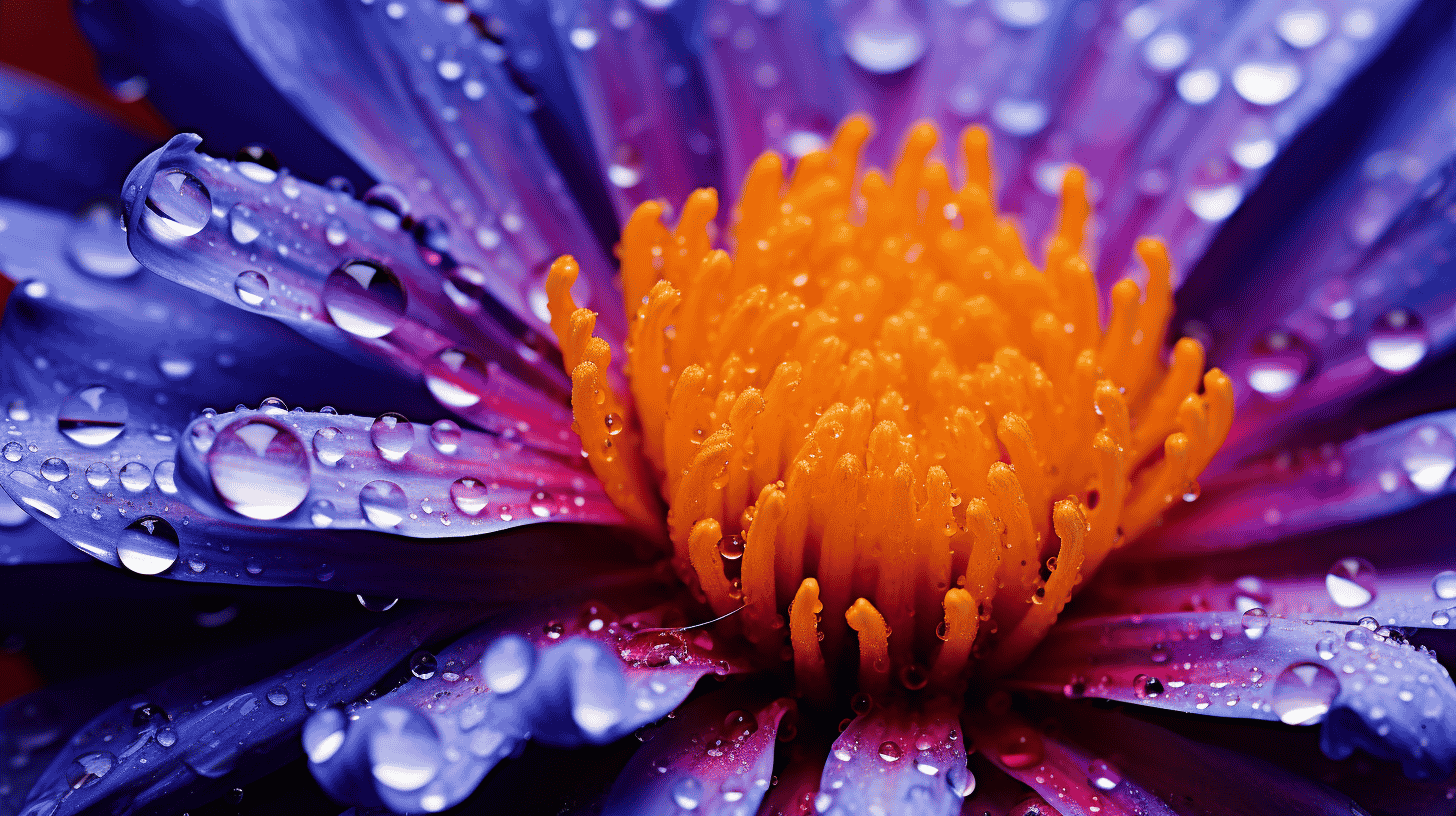Hey there! Are you frustrated with smudges, dirt, or dust affecting the image quality of your camera? We’ve all been there. Cleaning your camera lens is a crucial step to ensure optimal performance and image quality. In this article, I’ll guide you through the process of cleaning your camera lens, providing you with expert tips and tricks to keep your lens crystal clear. So let’s dive in!
But before we get started, it’s important to understand why cleaning your camera lens matters. This will give you a better understanding of the impact that dirt or smudges can have on your photographs. Let’s explore further in the next section.
Jump to: Why Cleaning Your Camera Lens Matters
Why Cleaning Your Camera Lens Matters
Preventing Disturbance in Image Quality
Cleaning your camera lens is a crucial step in maintaining optimal image quality. Over time, your lens can accumulate dirt, smudges, and debris, and these can greatly affect the clarity and sharpness of your photos. It’s disheartening to capture a beautiful moment, only to find that your images are marred by unwanted spots or blurriness.
By regularly cleaning your camera lens, you can prevent these disturbances and ensure that your photos are as crisp and clear as possible. Here’s why cleaning your camera lens matters:
- Dirt and smudges: Dirt particles and smudges on your lens can cause light to scatter and result in a loss of contrast and sharpness in your images. Regular cleaning helps eliminate these imperfections and ensures that your lens is free from any obstructions.
- Reduced lens flare: A dirty lens is more prone to lens flare, which is the unwanted streaks or circles of light that can appear in your photos, especially when shooting towards a bright light source. Cleaning your lens helps minimize flare and allows you to capture images with better clarity and accuracy.
- Extended lens lifespan: By taking good care of your lens and keeping it clean, you can prolong its lifespan. Dust, dirt, and other contaminants can potentially cause damage to your lens, affecting its performance and even leading to costly repairs or replacements.
- Improved autofocus performance: A clean lens allows your camera’s autofocus system to work more effectively. Dust particles or smudges on the lens can confuse the autofocus mechanism, resulting in slower or inaccurate focusing. Keeping your lens clean ensures that your camera can lock focus quickly and accurately.
- Enhanced image quality: Ultimately, cleaning your camera lens is essential for achieving the best possible image quality. A clean lens ensures that you are capturing images with maximum sharpness, clarity, and color accuracy, allowing you to fully showcase your photography skills.
Remember, prevention is key to maintaining a clean lens. By following general guidelines for handling and cleaning your camera lenses, you can keep them in excellent condition and enjoy consistently high-quality images. In the next section, we’ll discuss these guidelines in more detail.
General Guidelines for Cleaning Camera Lenses
Cleaning your camera lens is an essential task that should be performed regularly to maintain optimal performance and image quality. Whether you’re a professional photographer or a hobbyist, following some general guidelines can help you effectively clean your camera lens without causing any damage. Here are some important things to keep in mind:
Appropriate Handling of Lenses
- Always handle your camera lens with clean, dry hands. Oils and dirt from your hands can easily transfer onto the lens surface, affecting image quality.
- When removing or attaching the lens, make sure to do it in a clean and dust-free environment. Avoid exposing the lens to excessive heat or moisture.
Avoidance of Compressed Air
- Compressed air may seem like a convenient tool for removing dust and dirt from your lens, but it can actually do more harm than good. The force of the air can cause particles to be blown into the lens mechanism or scratch the lens surface.
- Avoid using compressed air cans or air compressors to clean your lens. Instead, opt for safer methods that we’ll discuss in the next section.
Using the Right Cleaning Solutions
-
When it comes to cleaning solutions, it’s important to choose the right ones that won’t damage the lens coating or leave residue. Here’s a recommended cleaning solution:
- Diluted 99% Isopropyl Alcohol mixed with distilled water at a 50/50 ratio is a safe and effective option. This mix helps to remove oil, smudges, and stubborn dirt without leaving residue on the lens.
- Avoid using harsh chemicals like household cleaners, acetone, or alcohol with a lower percentage, as they can damage the lens coating.
Remember to always apply the cleaning solution to a microfiber cloth or lens cleaning tissue instead of directly spraying it onto the lens. This prevents excess liquid from seeping into the lens mechanism.
Cleaning your camera lens doesn’t have to be a daunting task. Following these general guidelines will help you keep your lenses in top shape and ensure that your images are crisp and clear.
Effective Tools for Cleaning Camera Lenses
Cleaning your camera lens requires the right tools to ensure that you achieve optimal results. Using the correct tools will help you remove dirt, smudges, and other contaminants from your lens without causing any damage. Here are some effective tools to consider when cleaning your camera lens:
- Lens Blower: A lens blower, such as a Rocket Air Blaster, is a handy tool for removing loose dirt and dust from your lens. It uses a stream of clean, dry air to blow away particles without making direct contact with the lens surface.
- Microfiber Cloth with Cleaning Solution: A microfiber cloth is a must-have tool for cleaning camera lenses. It is soft and gentle, making it safe to use on delicate lens coatings. Pair the microfiber cloth with a cleaning solution specifically designed for camera lenses. Diluted 99% Isopropyl Alcohol mixed with distilled water at a 50/50 ratio is a recommended cleaning solution. This mixture helps to effectively remove smudges and stubborn stains without leaving residue behind.
- Cotton Swabs: Cotton swabs can be useful for cleaning hard-to-reach areas on the lens, such as the lens mount. Use them sparingly and be gentle to avoid any damage to the lens surface. It’s important to only use cotton swabs that are lint-free to prevent leaving behind any fibers.
- Lenspen: A lenspen is a convenient tool for cleaning DSLR lenses. It features a soft brush on one end for removing loose dirt and a special carbon-based cleaning tip on the other end for removing fingerprints and smudges. The lenspen is compact and portable, making it ideal for on-the-go cleaning.
- Turkey Baster: Surprisingly, a turkey baster can also be a useful tool for cleaning camera lenses. The powerful stream of air it produces can be used to blow away dirt and dust from the lens surface. Just be careful not to get any moisture from the baster on the lens as it could cause damage.
Using these tools in combination with proper cleaning techniques will ensure that your camera lens is kept in optimal condition. Remember to handle your lenses with care and avoid using excessive force when cleaning to prevent any scratches or damage. Regular cleaning will help maintain the performance and image quality of your camera lens, ensuring that you capture the best possible photos.
Step-by-Step Process of Cleaning Your Camera Lens
Keeping your camera lens clean is essential for maximizing image quality and ensuring optimal performance. Follow these simple steps to clean your camera lens effectively:
1. Initial Dust Removal
Before applying any cleaning solution, it’s important to remove any loose dust or dirt from the lens. Here’s how you can do it:
- Use a lens blower, such as a Rocket Air Blaster, to blow off any loose particles from the lens surface.
- Hold the camera with the lens facing downwards to prevent any residue from falling back onto the lens.
2. Apply Cleaning Solution to Cloth
Once you’ve removed the loose dust, it’s time to apply a cleaning solution to a microfiber cloth. The cleaning solution should be safe for your lens coating and effective in removing smudges and fingerprints. Here’s what you need to do:
- Dilute 99% Isopropyl Alcohol with distilled water at a 50/50 ratio to create a cleaning solution.
- Apply a small amount of the cleaning solution to a microfiber cloth. Avoid spraying the liquid directly onto the lens to prevent it from seeping into the lens barrel or controls.
3. Circular Motion Wiping
Now that your cloth is lightly damp with the cleaning solution, it’s time to clean the lens using a circular motion. Here’s how you can do it:
- Starting from the center of the lens, gently wipe in a circular motion towards the outer edges.
- Repeat this motion, applying slight pressure, until the entire lens surface has been cleaned.
- Make sure to clean both the front and rear elements of the lens.
4. Cleaning Hard-to-Reach Areas on the Lens
Certain areas of the lens, such as the lens mount, can be challenging to clean. Here’s a simple technique to clean these hard-to-reach areas:
- Dip a cotton swab in the cleaning solution and gently clean the lens mount and other crevices.
- Be careful not to apply excessive pressure or push debris further into the lens mount.
- Use a fresh cotton swab if necessary to ensure thorough cleaning.
Following these steps will help you maintain a clean lens and ensure optimal image quality. Remember, cleaning your lens should be done with caution and the right tools to avoid causing damage.
“Cleaning your lens thoroughly will keep you focused on capturing clear and sharp images.”
Conclusion
In conclusion, cleaning your camera lens is an essential task that should not be overlooked. By properly maintaining your lens, you can ensure optimal performance and image quality for your photography projects. Here are a few key takeaways to remember:
- Prevention is key: Regularly cleaning your lens can help prevent dirt and smudges from affecting the image quality.
- Handle with care: Always use appropriate handling techniques when cleaning your lens to avoid any damage.
- Avoid compressed air: It’s best to stay away from compressed air as it can cause condensation, which can further damage your lens.
- Choose the right cleaning solution: Diluted 99% isopropyl alcohol mixed with distilled water at a 50/50 ratio is a recommended cleaning solution.
- Essential tools: Use tools like a lens blower, microfiber cloth, lenspen, cotton swabs, and a turkey baster for effective cleaning.
- Follow a step-by-step process: Start by removing initial dust, apply cleaning solution to a cloth, use circular motion wiping, and clean hard-to-reach areas with cotton swabs.
Remember, a clean lens will produce sharper and clearer images, allowing you to capture those perfect shots. For more photography tips, tutorials, and camera reviews, visit Wimarys.com. Happy shooting!
Frequently Asked Questions
- Why is it important to clean your camera lens?
Cleaning your camera lens is important to maintain optimal performance and image quality. Dust, smudges, and other debris can affect the sharpness and clarity of your photos, leading to distortions and reduced image quality.
- What should I use to clean my camera lens?
To clean your camera lens, use a microfiber cloth or lens cleaning tissue specifically designed for lenses. Avoid using rough or abrasive materials that may scratch the lens surface.
- How should I clean my camera lens?
To clean your camera lens, start by blowing off any loose dust or debris using a blower brush. Then, gently wipe the lens surface in a circular motion using a clean microfiber cloth or lens cleaning tissue. If needed, lightly dampen the cloth with a small amount of lens cleaning solution.
- How often should I clean my camera lens?
The frequency of cleaning your camera lens depends on how often you use it and the environments you shoot in. As a general guideline, it is recommended to clean your lens whenever you notice dirt, fingerprints, or smudges that may affect image quality.
- Can I use household cleaning products to clean my camera lens?
No, it is not recommended to use household cleaning products to clean your camera lens. These products may contain chemicals that can damage the lens coatings or leave residue on the lens surface. Stick to using lens cleaning solutions specifically formulated for camera lenses.




0 Comments